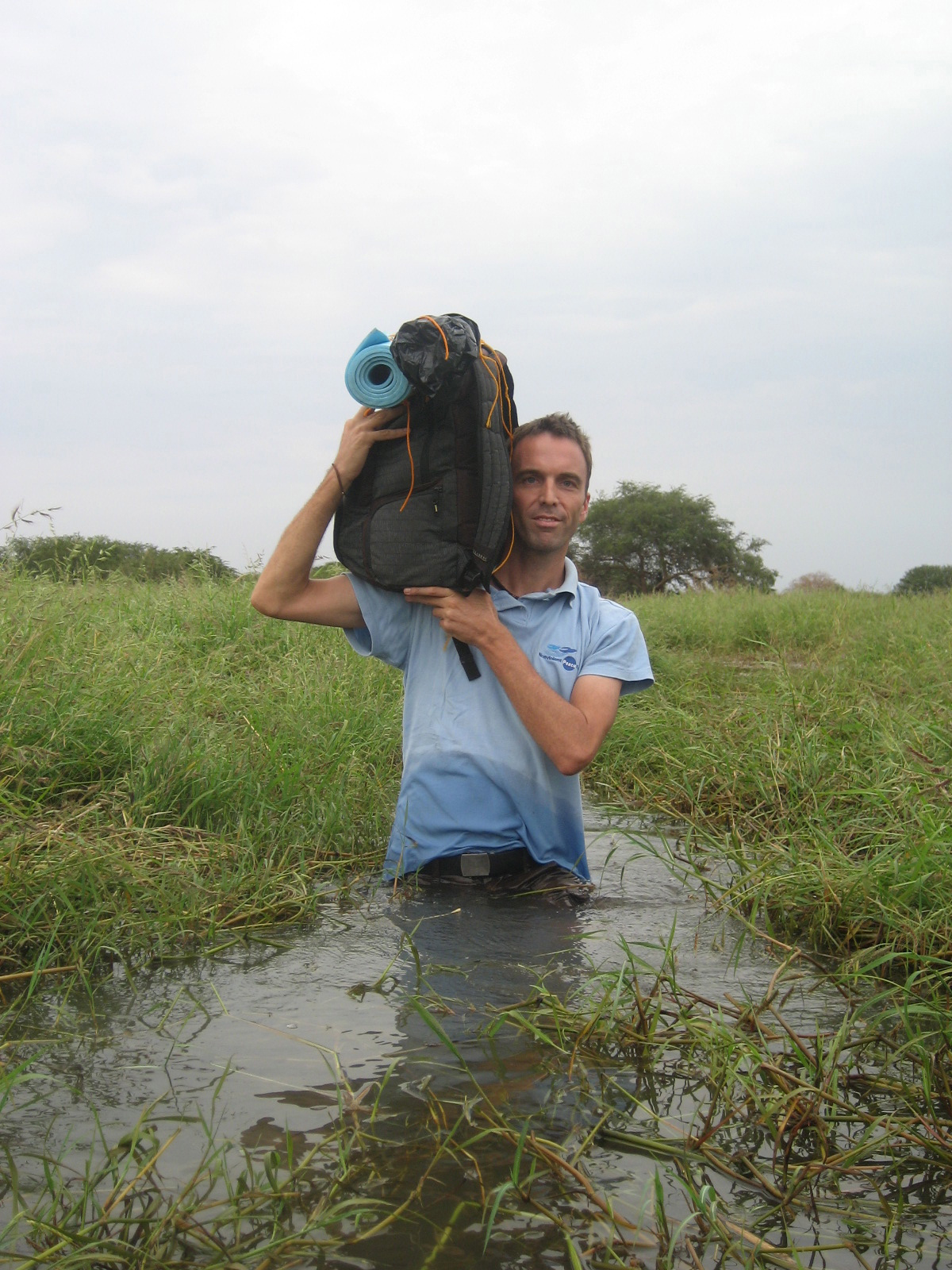Huibert Oldenhuis, Head of Mission in Myanmar

"Walking from village to village helped us win the trust of the people. When they knew they could trust us, they started to share their fears."
I’ll never forget setting up a field team
for Nonviolent Peaceforce in South Sudan in the summer of 2012. Within a few hours upon arrival in Waat, Jonglei, we had to evacuate our first team member. He had contracted malaria on the two-day drive from Juba. Within a few weeks of our team arriving, two of the town’s clans began quarrelling over our recruitment process. At the same time, monsoon storms blew away our newly built fences and sunk our tents into a thick layer of mud. With half the team ill and the other half demotivated, I was tasked to lead a project to reduce the impact of a potential genocide.
It looked calm, but ...
The genocide didn’t happen, at least not while I was there. In fact, hardly anything happened at all in Waat. The planned disarmament process was called off and fighting shifted to neighboring Pibor. While our NP colleagues in Pibor hit the ground running and protected women from sexual violence, we watched the days pass by quietly. Though we felt that violent conflict was lurking just beneath the surface, the town’s people believed, or perhaps hoped, that the worst was behind them. Many of them were traumatized and reluctant to think about worst case scenarios. The village elder I spoke to in my first week gave me a cold stare and said, “You are too late. Our women and children have already died.” A year later, on my way out of South Sudan, I switched on the TV at a transit hotel in Egypt. Civil war had erupted in South Sudan. Waat was in the middle of it.
Getting started
How do you move forward in a situation like that? How do you start a protection project in a place where violence is not visible? In a town where you can meet all relevant actors within a single day? In a year when heavy rains make transportation impossible for months on end?
On foot
I decided to walk. Literally. Sometimes I walked for up to 12 hours a day, through water that came up to my chest. The locals laughed at me and called me ‘the white Nuer.’ We visited remote villages across the area and facilitated workshops on unarmed civilian protection. Our teams did this mostly to gain trust and build relations. What kept me going was the small achievements. This included a discussion in a small village where a group of women voiced their disapproval of marital rape and got the men to listen. As our visits became more frequent, villagers started to share protection concerns: cases about confiscated cows, abducted children and armed men moving through the area. In Waat, I learned the importance of holding my ground during the inevitable low tide of a conflict cycle and at the same time maintaining movement.
Moving to Myanmar
When I resumed my work for Nonviolent Peaceforce and moved to Myanmar in 2014, I found myself in a completely different situation. I arrived at the center of movement and in the high tide of political change. Buildings and roads were rising up on every corner of Yangon. Armed groups and government negotiators were signing a nationwide ceasefire agreement one month and Aung San Suu Kyi swept the national elections the next. Despite the excitement of being in Myanmar at such a historic time, it was frustrating to have little access to the field. I missed the freedom of Waat, the ability to move about freely and to intimately connect with the people on the ground.
A new approach
The only way to move forward was to change NP’s approach in Myanmar. Instead of zooming in on a particular context, we zoomed out and started to train local actors across the country. Though the absence of field teams was challenging, I came to see the civilians we trained and coached as our field teams. Besides, adopting a bird’s eye view created opportunities to share lessons and connect with people across ethnic divisions. Most of all it was deeply rewarding to see so many ordinary civilians overcoming their fears and responding to conflicts in their own communities. Yesterday, one of our partners sent me pictures of an unexploded ordinance villagers found. After they contacted him, he contacted the military and together they visited the area where the unexploded ordinance was found. Three years later, Myanmar’s honeymoon period seems to have ended. The pace of the peace process is slowing down. here is a feeling that the space for civil society’s participation in the peace process is shrinking. Some of our partners have decided to slow down their efforts or contemplate stopping altogether. In Rakhine, the situation suddenly explodes just when we are about to strengthen capacity on the protection of civilians. I remember the words of the village elder in Waat and wonder if we are too late, once again.
Lasting change
Yet when I am disheartened, I remember a recent message I received from a colleague in South Sudan. She told me how much my former South Sudanese team mates have grown since I recruited them in 2012. One of them has just mediated a dispute in his own community and is proud of his promotion with NP. His dream of making a difference for his people came true. You made this possible. Change comes in waves. We need to hold our ground and keep moving!
